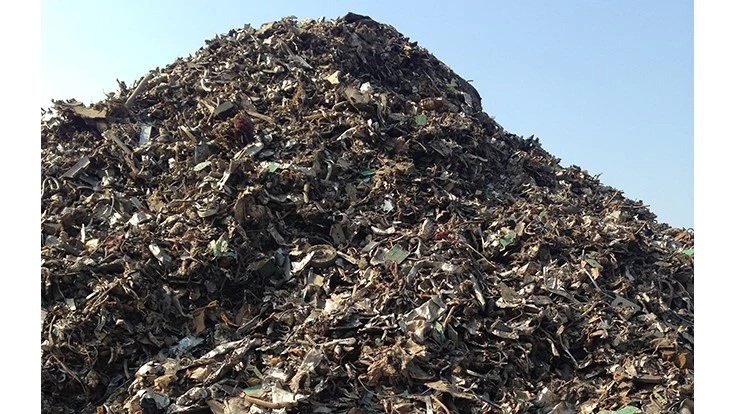
The movement of ferrous scrap into Turkey has sharply dropped in part because of the United States hitting the country with tariffs from 25 percent to 50 percent on its steel.
According to a web posting by London-based Freight Investor Services (FIS), the uncertainty has made some Turkish banks reluctant to open letters of credit (LCs) or has caused them to engage in long delays in issuing the LCs.
With the difficulty Turkey is having shipping steel to the U.S., reports have come in that the country has shifted its attention to sell more finished steel products into Southeast Asia, adds FIS.
A report from Germany’s BVSE is one of many analyses pointing to the Turkish economy as struggling during the past several months. This has been exacerbated by the raised tariffs on Turkish aluminum and steel imports in the U.S.
The BVSE’s Birgit Guschall-Jaik says in the near future it will become clearer what kind of risk premiums are to be expected from Turkish banks. Concerns over the stability of the Turkish banking system also could reduce the number of deep-sea scrap cargo shipments.
Adding to the woes of Turkish steelmakers is the decline in value of the Turkish lira, which could increase the price of scrap imports considerably for Turkish mills. The resulting decline in global scrap demand is likely to put downward pressure on ferrous scrap prices in key supplier countries, including the U.S.
Latest from Recycling Today
- BMW Group, Encory launch 'direct recycling’ of batteries
- Loom Carbon, RTI International partner to scale textile recycling technology
- Goodwill Industries of West Michigan, American Glass Mosaics partner to divert glass from landfill
- CARI forms federal advocacy partnership
- Monthly packaging papers shipments down in November
- STEEL Act aims to enhance trade enforcement to prevent dumping of steel in the US
- San Francisco schools introduce compostable lunch trays
- Aduro graduates from Shell GameChanger program





